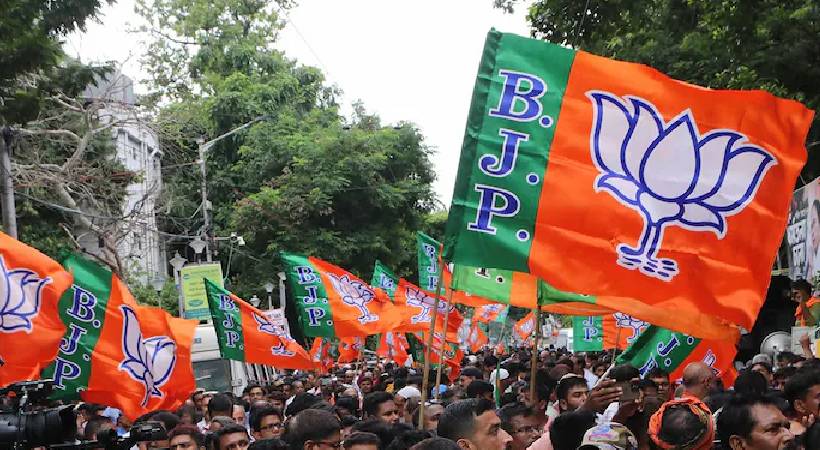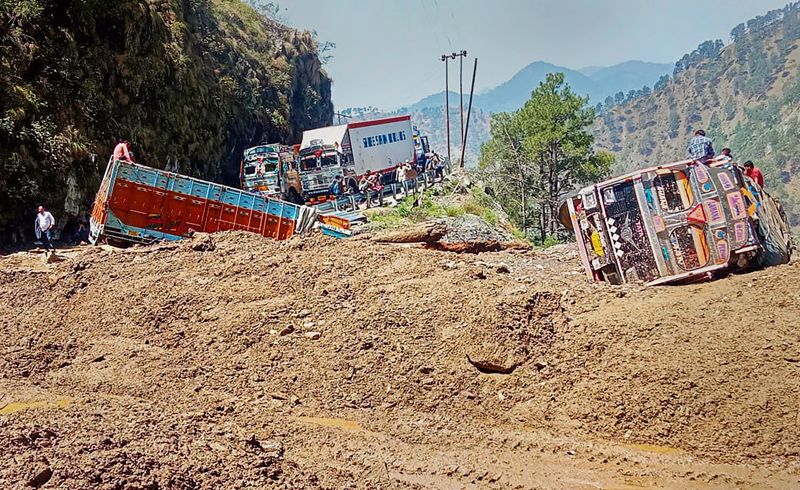A Political Flashpoint Reignited in Kashmir
By: Javid Amin | Srinagar | 01 July 2025
As Kashmir’s newly formed People’s Alliance for Change (PAC) makes bold demands for restoring Article 370, returning full statehood, and granting general amnesty, the Bharatiya Janata Party (BJP) has issued a sharp, unequivocal rebuttal. Labeling PAC’s agenda as “daydreaming”, the BJP has dismissed the alliance’s joint declaration as “a political gimmick aimed at misleading the public.”
With this, the ideological battle lines are once again drawn in Jammu and Kashmir—between a coalition demanding constitutional rollback and regional reintegration, and a ruling party that considers the 2019 abrogation of Article 370 a historic correction.
This clash isn’t just about constitutional interpretation—it’s a battle for Kashmir’s political soul, electoral future, and public trust.
BJP’s Response: “No Power Can Restore Article 370”
Addressing the media, Ashok Koul, BJP’s General Secretary (Organization) for J&K, delivered a scathing critique of the PAC. His words were blunt, politically charged, and strategically calculated.
“The demand to restore Article 370 is not only unconstitutional—it’s fantasy. No power can bring it back. This is just an attempt to befool the people and gain electoral sympathy,” said Koul.
According to Koul, the revocation of Article 370 and 35-A in August 2019 was a permanent constitutional decision, duly ratified by the Indian Parliament and the Supreme Court. He asserted that the PAC leaders were indulging in emotional exploitation, playing on sentiments they know cannot be legally or practically addressed.
BJP’s Key Arguments:
-
Finality of Abrogation: BJP views the 2019 constitutional move as legally irreversible.
-
Democratic Integration: The party claims the move fully integrated J&K with the rest of India.
-
Development Narrative: BJP insists that post-370 abrogation has ushered in development, investment, and transparency in governance.
PAC’s Stand: A Moral and Political Reversal
In contrast, the PAC frames its demands as a democratic correction of what it calls a “political betrayal”.
Their “Declaration for Change” outlines a clear roadmap:
-
Restore Articles 370 and 35-A
-
Reinstate full statehood
-
Release political detainees
-
Promote inclusive, grassroots politics
“It is a moral, political, and constitutional necessity,” said PAC leader Sajad Lone, dismissing the BJP’s stance as “arrogant and detached from ground realities.”
According to PAC members, BJP’s majoritarianism and centralist governance have alienated Kashmiris further, shrinking democratic space and deepening trust deficits. They argue that reversing the post-2019 order is necessary to restore dignity and federalism.
The Deep Ideological Divide: Beyond Legalities
The BJP-PAC confrontation is not merely about constitutional provisions—it reflects deeper ideological conflicts over:
Federalism vs. Centralization
-
PAC views the abrogation of 370 as an assault on federalism, reducing a state with special status to a centrally administered Union Territory.
-
BJP, on the other hand, frames it as a unifying act that corrects past constitutional asymmetries.
Identity vs. Uniformity
-
PAC insists that J&K’s cultural, political, and historical identity warrants special safeguards.
-
BJP pushes a pan-Indian identity, seeking uniformity in laws, governance, and citizenship rights.
Reconciliation vs. Triumph
-
PAC views dialogue, amnesty, and local participation as tools for lasting peace.
-
BJP emphasizes security, development, and discipline, often through administrative rather than political measures.
Political Commentary: “BJP Can’t Silence Democratic Aspirations”
The BJP’s outright dismissal of PAC’s demands has triggered sharp criticism from opposition leaders, scholars, and civil society. Critics argue that closing the door on debate only reinforces alienation and political radicalization.
“You cannot wish away a region’s political memory,” said political analyst Dr. Aijaz Masoodi. “The BJP may believe the matter is closed legally, but the aspiration for autonomy remains alive in people’s hearts and minds.”
Legal experts point out that while restoring Article 370 through legislation may be improbable, democratic politics allows space for such demands to be voiced, debated, and even re-legislated, should the political balance shift.
Development vs. Dignity: The Post-370 Reality Check
Since the 2019 abrogation, BJP has consistently claimed major developmental gains in the region. These include:
-
Investment proposals exceeding ₹50,000 crore
-
New jobs in tourism, horticulture, and IT sectors
-
Improved connectivity (e.g., road, rail, telecom)
-
Implementation of central laws including reservation reforms
But PAC leaders and residents counter these claims, citing:
-
Jobless growth: Many youths allege that promised employment hasn’t materialized.
-
Political vacuum: Continued delay in Assembly elections has eroded faith in institutions.
-
Administrative alienation: Central rule has led to top-down decision-making with limited public participation.
“Where is the dignity in development without democracy?” questioned PDF leader Hakeem Yaseen.
Public Sentiment: Between Hope, Fatigue, and Fear
The ongoing political discourse has revived mixed reactions across the Valley:
Support for PAC Among Youths
Many young Kashmiris, especially students and first-time voters, find PAC’s agenda more resonant and emotionally authentic.
“They speak our language—about statehood, jobs, identity,” said a university student in Baramulla. “We’ve had enough of the development slogans with no real change.”
BJP’s Urban Base Remains Loyal
Conversely, urban traders, professionals, and security families remain aligned with the BJP’s vision, citing improved law and order and access to central schemes.
“There is stability now. We’re able to work and travel more freely,” said a Srinagar shopkeeper.
The Silent Majority
Yet, a large section of the population remains fatigued, skeptical of all political actors. Years of unfulfilled promises, violence, and crackdowns have led to a trust deficit that neither side has fully addressed.
What Political Experts Say: Will the PAC-BJP Clash Shape 2025 Elections?
With Assembly elections expected in 2025, this confrontation is more than rhetorical—it’s strategic posturing for voter mindshare.
Dr. Nazima Yousuf, Political Scientist:
“PAC could eat into NC and PDP’s space, but its challenge to BJP will depend on rural mobilization. The real battle will be fought over youth participation.”
Syed Iftikhar, Former Bureaucrat:
“The BJP has numbers and resources, but PAC has narrative. The next elections could see a clash between institutional muscle and emotional memory.”
Legal Finality vs. Political Reality: Can Article 370 Be Restored?
Legal Status
-
In December 2023, the Supreme Court upheld the abrogation of Article 370, stating that Parliament had the authority to remove the provision.
Can It Be Reversed?
-
Legally, only a new parliamentary majority with the political will can reintroduce a special status provision.
-
Practically, this would require nationwide political consensus, unlikely under the current BJP-led central government.
“It’s like trying to reinsert a tooth you’ve already extracted,” said constitutional scholar Faizan Ahmad. “But that doesn’t mean people won’t keep demanding it.”
Strategic Implications: Delhi’s Calculus, PAC’s Gamble
This episode forces New Delhi into a delicate balancing act:
-
Crushing PAC too hard may make it appear anti-democratic.
-
Ignoring it may allow anti-BJP sentiment to grow unchecked.
-
Engaging with it might invite criticism from BJP hardliners and allies.
For PAC, meanwhile, the stakes are equally high. If they can mobilize public emotion into electoral strength, they could reshape Kashmir’s political architecture. If not, they risk becoming yet another short-lived experiment in the region’s long list of failed alliances.
Bottom-Line: Battle Lines Drawn, But the Voters Will Decide
The BJP’s rejection of PAC’s demands for restoring Article 370 may appear legally sound and politically consistent. But Kashmir is not just a legal issue—it’s a landscape of identity, history, and unhealed trauma.
As PAC revives emotional politics, BJP stands firm on development and nationalism. The outcome of this ideological contest will not be decided in press conferences or courtrooms—but in the ballot boxes of 2025.
Between daydreams and development, between restoration and realism, Kashmir’s voters now hold the pen to write the next chapter.



